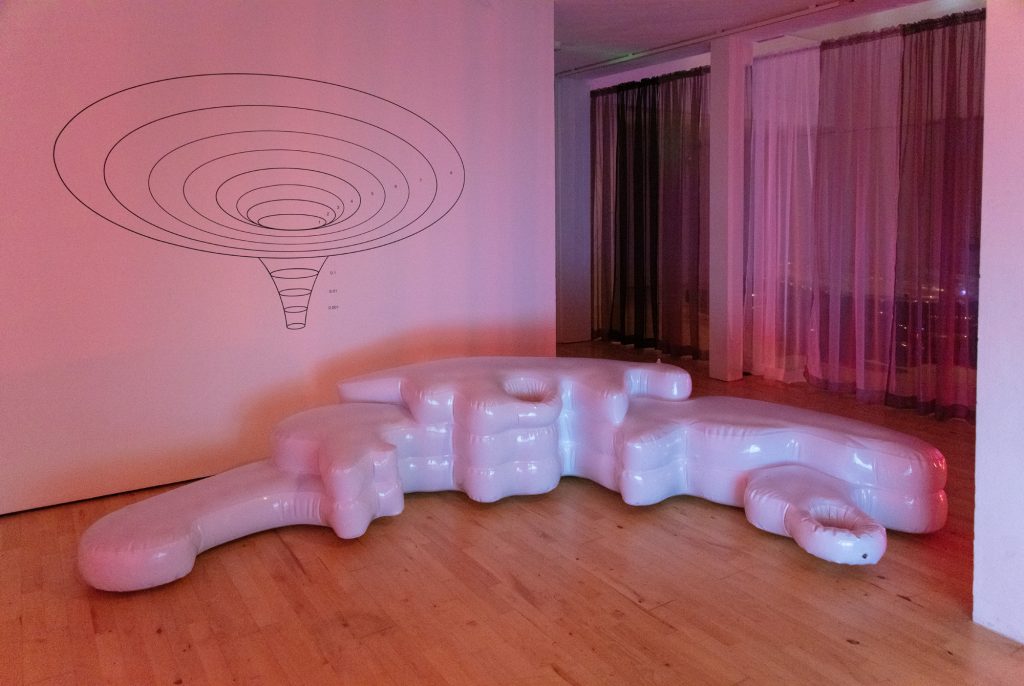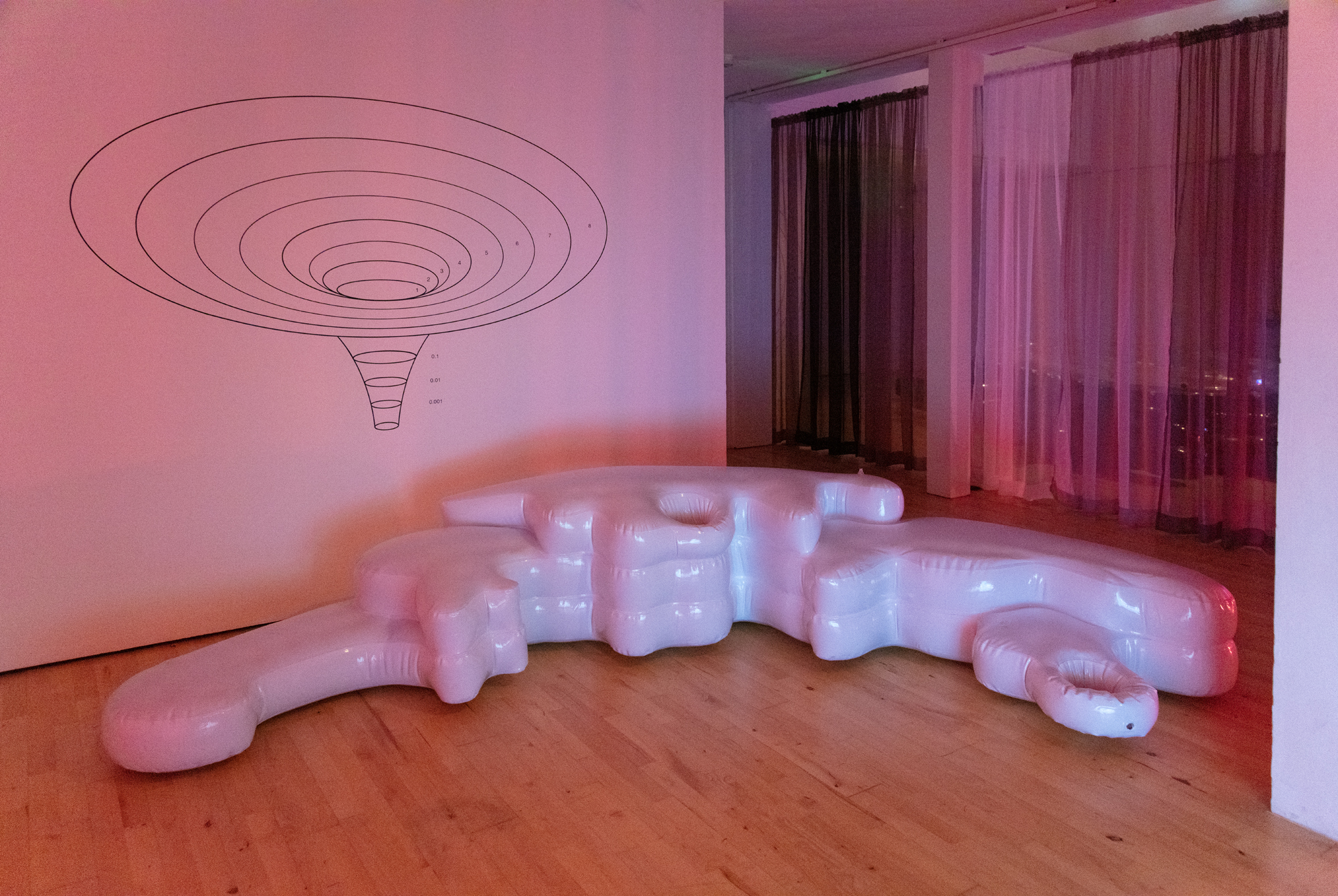Text by CLOT Magazine

Domestic food fermentation gained momentum during the periods of social isolation caused by the COVID-19 pandemic, with many people sharing homemade recipes through social media. The interdisciplinary design collective The Decorators take the idea of commensality – the social practice of eating together – and extend it beyond human to include microbial communities in Portal Tables.
The Stanley Picker Fellowship commission project explores bacterial communities, such as those nurtured in food fermentation, actively participating in human digestion. It is believed that bacteria can modulate people’s moods by releasing hormones like dopamine and serotonin, perhaps as a substitute for the social joy of IRL (In-Real-Life) human interaction.
In parallel, a growing area of research has been exploring how bacterial communities digest xenobiotic materials, synthetic and foreign to animal life. It was found that different species of bacteria eat plastic, including Pseudomonas Putida and Ideonella Sakaiensis. These findings distort the structure of commensality as we know it and open-up ethical questions regarding using bacterial life as a solution for human happiness or pollution.
Portal Tables was launched online in May 2021 with the video-essay Portal Tables: Connecting Multiscalar Communities. A preview of the project was displayed at the Victoria & Albert Museum for London Design Festival (18-26 September 2021) with the furniture piece Sofa-Bread, before the project received its full premiere at the Stanley Picker Gallery in November 2021, with the exhibition running until 5 February 2022.
Portal Tables is a set of three polyurethane inflatable furniture pieces encouraging affect between microbial and human communities. The pieces are designed to be flatpack, easy to wash and used anywhere within the home or outside:
Kimchi-Pool seats up to twelve people around a large vessel as they collectively make Kimchi – fermented cabbage and radish, a staple of Korean cuisine. Users may choose to sit, kneel or lean, negotiating their bodily position and weight around the bouncing materiality of the Kimchi-Pool. The largest European Korean community lives near the Stanley Picker Gallery in New Malden, within the Royal Borough of Kingston.
Cheese-Board has been designed for one person to make Labneh, a type of soft cheese traditionally made in Lebanon. One can kneel at the table’s edge and use it as a working surface. Then lay down on top of it while waiting through the fermentation process.
Sofa-Bread sits two people. It invites a diversity of postures – feet up or down, upright or lying down. The two ceramic bowls are for proof of bread dough whilst users rest together on the sofa.
On the walls are two diagrams. The first is anthropologist Susanne Kerner’s diagram of commensality, outlining different levels of food sharing, evolving from one body – such as in-utero feeding, where food is shared between mother and foetus – to many bodies, from siblings to strangers, banquets to food banks. The second diagram distorts the first, shifting the gaze to the inside of the human body, thus considering the microbial communities involved in commensality.
The two short films for the exhibition were directed in collaboration with Sergio Márquez, with graphics and motion design by Stephen McLaughlin, and an original soundtrack by Maxwell Sterling.
In the second of these films, Cheese-Board was activated by Inês Neto dos Santos and Sofa-Bread was activated with the performance Resting (2021) by Laura Wilson, performed by Elina Akhmetova and Piedad Seiquer with costumes by Lucie Kordacova.
Portal Tables is a project that comments upon the contemporary obsession with microbial life, probiotics and well-being and speculates on the possible relations and social encounters – political, tender, economic, and friendly – across bodies and species.






